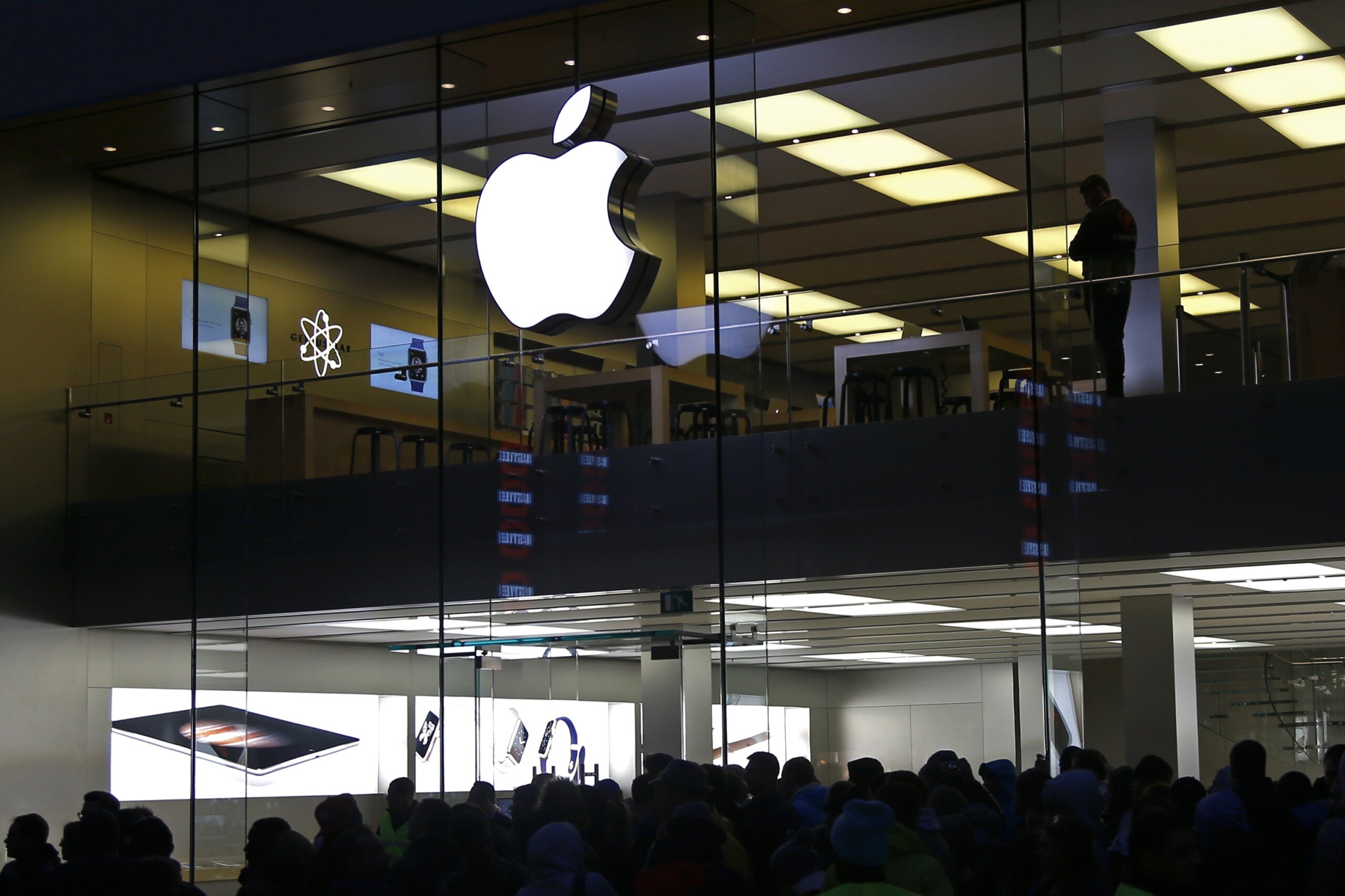Bussiness
Labour minister says compressed hours could raise productivity; European stocks hit record high – as it happened

Closing summary: Labour flexible working policy starts four-day week debate
Is the UK on the brink of a four-day working week becoming the norm? Not yet. However, the new Labour government has acknowledged that its ideas of “flexible working” include compressed hours – working 100% of the hours, but in four days ather than five.
Labour minister Jacqui Smith said that compressed hours could benefit UK productivity by encouraging more people – such as parents or carers – into the workplace.
Ben Willmott, head of public policy for the CIPD, the professional body for HR, said the government should assess the effects of the right to request flexible working that was introduced in April before pushing ahead with more changes. He said:
Flexible working arrangements such as compressed hours, job sharing and term-time working can help people balance their work and home life commitments, while also supporting employer efforts to recruit and retain staff. However flexible working has to work for both the business and workers if it’s to be sustainable and this needs to be recognised in any changes to regulation.
Compressed hours are different to the actual four-day week: doing 80% of the standard hours, but crucially with no loss of pay. But the willingness of the Labour government to even say the words “four-day week” is a marked change from the Conservatives, who tried to block any shift towards a shorter working week for public servants.
There still remains the question of how changes to encourage flexible working will work in practice.
Charlie Thompson, employment partner at Stewarts, a law firm, said:
Employees in the UK already have the right to request flexible working, which includes requesting a four day week, so it’s not yet clear what this “new” law will entail. One possibility is for the government to make it more difficult for employers to refuse such requests, because at present it is quite easy for them to do so.
Felicity Baker, co-founder of Ultimate Resilience, a consultancy on mental health in the workplace, said that she had worked with an IT company that trialled the four-day week last year.
We discovered that giving employees the option of time back with no loss of pay benefited their work/life balance, mental health and overall wellbeing. They never went back.
However, introducing flexibility also has potential to undermine team relationships and derail business objectives if not handled carefully. Highgate found that keeping staff at the centre of planning, by providing training and a buddy system, was crucial to ensure they were well supported and to make changing work patterns sustainable.
In other business and economics news:
You can continue to follow our live coverage from around the world:
In the UK, the government is seeking to make ‘fewer places where you can smoke’
In Europe, high-profile politician Sahra Wagenknecht is sprayed with liquid as Germany gears up for key state elections
In the US, the Harris campaign launches an abortion-focused bus tour as polls show momentum against Trump
In our coverage of the Middle East crisis, a senior Hamas commander is killed by Israeli police in West Bank, IDF says
And there is a lot of sport to ease you into the weekend: it’s day two of the Paralympic Games in Paris; it’s football transfer deadline day; and England are dominating the second men’s test cricket match against Sri Lanka.
Thank you for following the business live blog all of this week. Normal service with the inimitable Graeme Wearden will resume next week! JJ
Key events
The buying mood on Wall Street has picked up slightly this morning, perhaps helped by US spending data.
Here are the opening snaps from Reuters on the US’s key stock market indices:
-
S&P 500 UP 26.43 POINTS, OR 0.47%, AT 5,618.39
-
NASDAQ UP 136.87 POINTS, OR 0.78%, AT 17,653.30
-
DOW JONES UP 83.13 POINTS, OR 0.20%, AT 41,418.18
US stock indices futures perked up slightly after the spending data.
Futures trades indicate that the S&P 500 will rise by 0.3% when Wall Street opens in a few minutes.
The US spending data points to a September rate cut by 0.25 percentage points, according to Paul Ashworth, chief North America economist at Capital Economics, a consultancy.
It sounds like something of a Goldilocks reading for the Federal Reserve: not too hot (inflationary) and not too cold (showing a slowdown in consumer spending). Ashworth said:
The July income and spending report shows price pressures remaining muted despite the strength of real consumption.
Even allowing for the unexpected strength of imports, GDP growth is tracking at close to 2.5%, which should ease any lingering recession fears. Overall, this report points to a 25bp rate cut from the Fed next month.
The US spending data does not offer any surprises for economists looking at the Federal Reserve’s plans. It offers a picture of an economy running with fairly strong momentum, and with few signs that inflation is running wild.
As Bloomberg News points out, the headline core personal consumption expenditure (PCE) inflation measure – which strips out volatile food and energy – may be overstating how far off the Fed’s 2% target inflation is. It reported:
On a three-month annualized basis — a metric economists say paints a more accurate picture of the trajectory of inflation — it advanced 1.7%, the slowest this year.
Reuters suggest that the data “argues against a half-percentage-point interest rate cut from the Federal Reserve next month”.
Federal Reserve’s preferred core inflation measure steady at 2.6%
The Federal Reserve’s preferred measure of inflation stayed steady at 2.6% year-on-year in July, as the US central bank prepares to cut interest rates.
The core personal consumption expenditure (PCE) price index has risen at the same pace for the past three months after falling. That has helped to persuade the Fed that “the time has come” for interest rate cuts, which are expected to start in September.
US personal spending also rose by 0.5% in July, as expected by economists, in a sign that the American consumer is continuing to hold up the world’s largest economy.
HMS Cardiff, the second of the UK’s Type 26 submarine-hunting frigates, is being put onto the water for the first time in Govan, near Glasgow.
The ship is being built by BAE Systems, the FTSE 100 company that dominates the UK’s weapons industry.
BAE said that the ship has been moved from the slipway to a barge. It will be towed down river to a deep-water location in the West of Scotland. BAE Systems said:
Once in position, and over a number of hours, the barge will submerge and the anti-submarine warfare frigate will enter the water. She will then return to BAE Systems’ Scotstoun shipyard where she will undergo the next stages of outfit before test and commissioning.
You can read more about the UK’s shipbuilding – and its struggles – here:
The FTSE 100 has hit a three-month peak, helping European stocks to their record high this morning.
London’s benchmark index hit a high of 8,414.37, overtaking its high point on 1 August, before the financial market turmoil that saw prices rapidly crater before gradually rebounding.
However, it remains short of the record of 8,474.41 on 15 May, as you can see from the below chart covering the last six months.
Government sells more NatWest shares
Kalyeena Makortoff
The Labour government has continued to chip away at the public stake in NatWest, taking the taxpayer holding from 18.99% to 17.97%, according to the latest market update.
It means the stake has more than halved this year, as chancellor Rachel Reeves continues to drip-feed shares to the open market, in a bid to fully exit the holding by 2025-26.
The government stake is a hangover from its £46bn bailout of NatWest, formerly known as Royal Bank of Scotland Group, which resulted in the state taking an 83% stake in the lender in the 2008 financial crisis.
Reeves last month scrapped Tory plans to sell a chunk of state-owned shares to the general public in a highly anticipated privatisation drive, that was due to launch through a “Tell Sid”-style campaign featuring Sir Trevor McDonald. “It would therefore not represent value for money, and it will not go ahead,” Reeves said in July.
The government stake sales have hit two milestones so far this year. In March, the shareholding fell below 30%, meaning the government was no longer classed as a “controlling shareholder”. That meant that during its AGMs, it no longer had to hold two separate votes for resolutions including director appointments (to distinguish between government and independent shareholder votes).
Then, by July, the stake dropped below 20% meaning that by next year, the state will no longer be considered a “related party” – which requires additional transparency around its relationship with the bank.
Commenting on the latest stake sale update, a NatWest Group spokesperson said:
We are pleased with the continued reduction of the government’s stake, which has more than halved this year and now stands at 17.97%.
We welcome the chancellor’s commitment last month to returning NatWest Group to full private ownership. This is a shared ambition that we believe is in the best interests of both the bank and all our shareholders.
Further reading: Growing momentum for a four-day working week
The idea of a four-day working week has moved from the political fringe to mainstream discourse surprisingly rapidly.
The Labour government is now considering compressed hours – 100% of standard working week, but worked over four days instead of five – as an option for flexible working that businesses will have to consider.
In 2018 only a few businesses had opted for the four-day week as a policy. (That is not to say that it is completely new: some shift and part-time work already operated something similar.)
But the policy caught the eye of John McDonnell, Labour’s then shadow chancellor.
The trickle of businesses opting for a four-day week grew slowly at first, but with companies reporting success. The coronavirus pandemic upended working practices for everyone, but particularly for office workers who found they could work remotely much of the time. That added to momentum across Europe.
Joe Ryle, a former Labour staffer, then launched the UK’s 4 Day Week Campaign in 2021. The campaign got more and more businesses on board to trial the change.
Of the 61 organisations that took part in a six-month UK pilot in 2022, 54 (89%) are still operating the policy a year later, and 31 (51%) have made the change permanent.
And the campaign is now looking for businesses to pilot flexible working, including but not limited to the four-day week.
Scottish broadcaster STV poaches ITV executive as new boss

Mark Sweney
Scottish broadcaster STV has raided rival ITV for its new chief executive with the long-serving executive responsible for the launch of Netflix-challenger ITVX set to start in November.
STV, which earlier this year announced the departure of boss Simon Pitts after six years, has appointed 13-year ITV executive Rufus Radcliffe to run the broadcaster.
Radcliffe, who also previously spent nine years working at Channel 4, has most recently held the role of managing director of ITV’s streaming business and has also served in positions including chief marketing officer.
He was responsible for the launch of ITVX two years ago and during his time at Channel 4 launched the broadcaster’s first streaming service, 4OD.
Radcliffe replaces Pitts, also a former senior ITV executive, who is set to take up the role of chief executive of Global, Europe’s biggest commercially-funded radio operator.
Global, which Pitts will join in November, owns stations including Capital, Heart, LBC and Classic FM and in recent years has acquired outdoor advertising companies including Exterion, which runs the £1.1bn contract for Transport for London including London Underground, the biggest of its kind in the world.
Michael Field, European market strategist at Morningstar, a financial research company, said:
After the spike in inflation we witnessed in July, investors will be glad to see that this number abated in August and fell back to 2.2%. This 0.4% fall now puts us back within touching distance of the European Central Bank’s targeted level.
Core inflation, the measure that strips out volatile components such as fuel and food, also fell by 0.1% to 2.8%. Granted this number remains materially higher than the 2% targeted inflation level; however, it is at least moving in the right direction.
With inflation seemingly settling at or around where we need it to be, and unemployment stable, the ECB should reaffirm this in its course of action. This sets us up nicely for further rate cuts this year.










